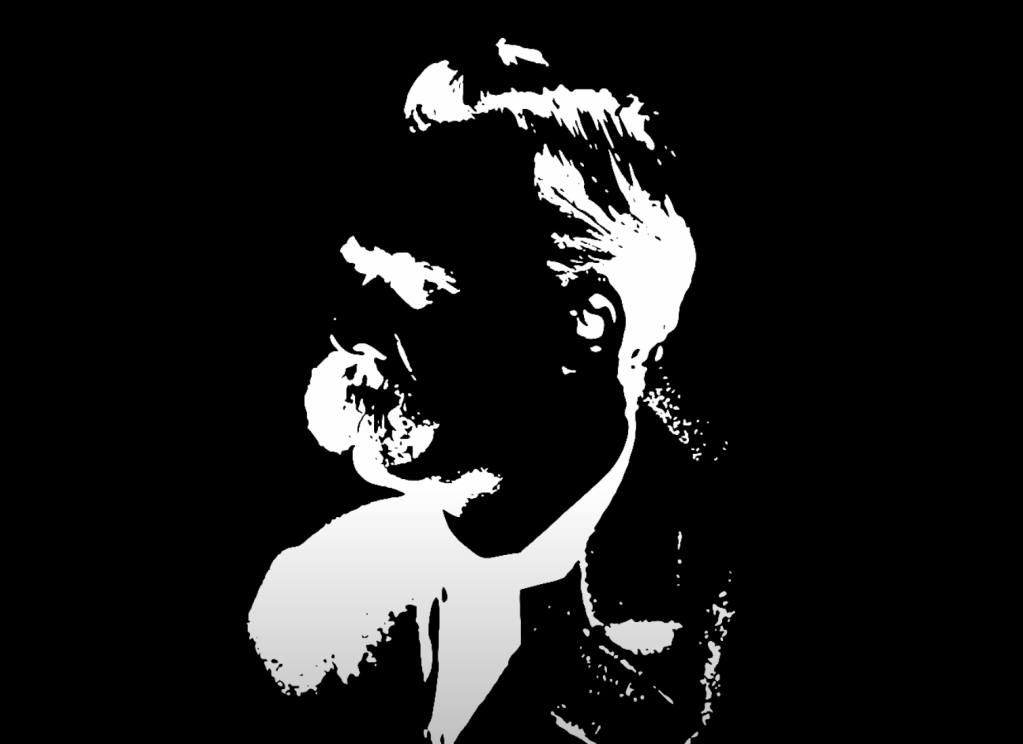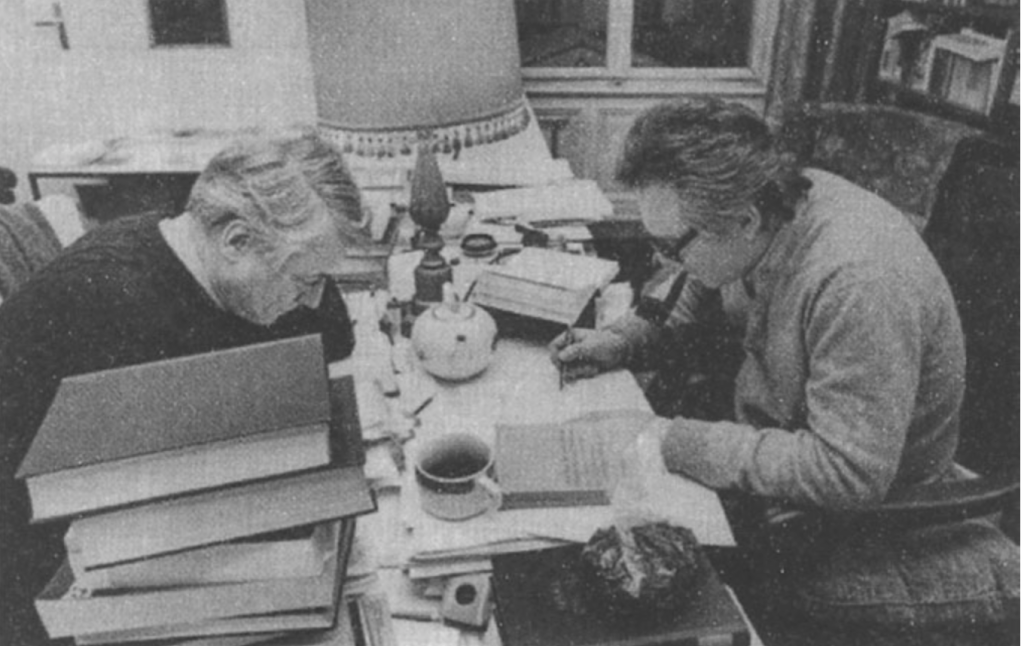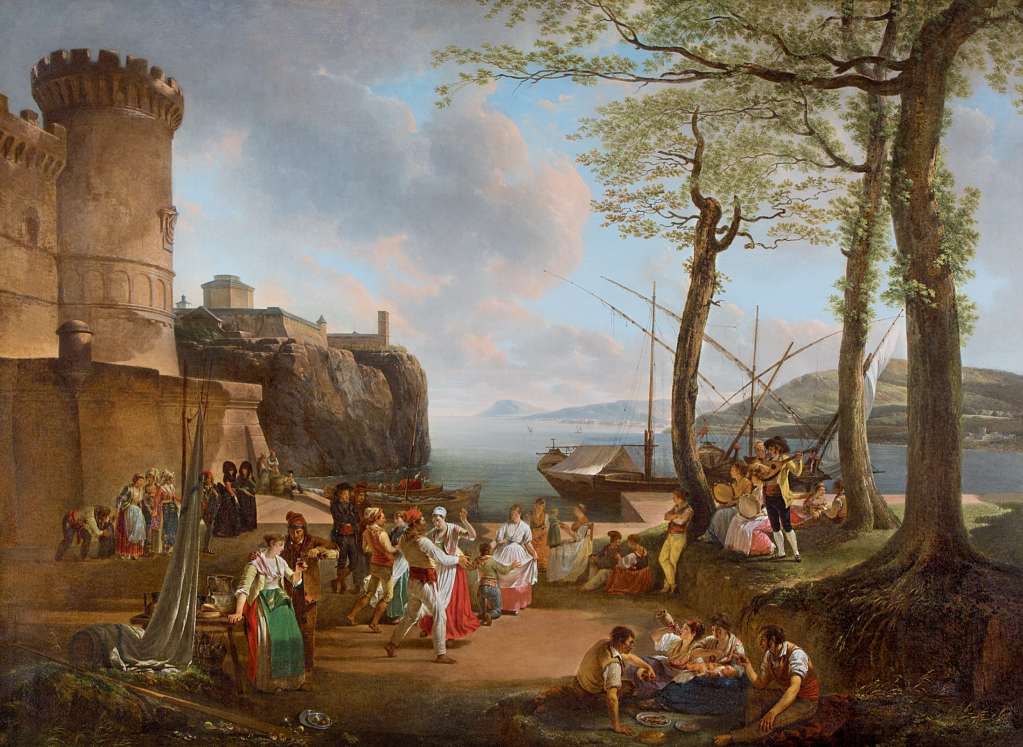Once the problem has been set out, we can no longer get away from it, and the Right itself has to talk in a different way. So the job of the Left, whether in or out of power, is to uncover the sort of problem that the Right wants at all costs to hide.
Deleuze, Negotiations
In case you missed my conversation with Catherine Liu on the history of French theory in America, I recommend watching it. I wanted to bring Catherine on my show to discuss how French Theory grew to such prominence in American culture and academia, and to discuss how it has shaped not only the left but many aspects of our everyday life, from how we conceive of power, sex, the figure of the intellectual to the literary canon. French Theory was not merely a fad, it has had deep and long-lasting effects on our culture.
These days we are most familiar with this legacy in the ways the right has turned French Theory into a conspiracy of “cultural Marxism”, a wildly distorted and exaggerated claim which has no bearing on the historical actuality of the rise of French Theory.
To the contrary, French Theory in America profoundly weakened Marxism within the academy. Francois Cusset’s work on this history is instructive and he shows how French Theory became a “discourse on itself”, an intransitive activity that stoked the narcissism of the scholar and kept any serious critique of capital off the table.
Liu is skeptical of French Theory and of post-structuralism, and she reads its rise on the left, I think rightly, as a way for a new class, the “professional managerial class” in the 60s and 70s, to connect a counterculture mode of revolt within the academy. She is fond of citing Christopher Lasch—readers will know Lasch is an important reference for me as well—who wrote about “academic pseudo radicalism” and he despised aspects of French Theory, especially the psychoanalytically inclined project of Deleuze and Guattari.
Naturally, Liu and I landed our discussion on Deleuze and Guattari’s Anti-Oedipus. The question is whether this work is an important text for the left. Liu argues there is nothing useful in this work because its ideas are wrong. It is grounded in an anti-universalist and anti-socialist framework and as such, its entire orientation simply does not help us build left universal approaches to redistributive politics at the end of the day.
I think Liu wanted to find someone who would be a “dyed in the wool” Deleuzian to debate this issue. But I’m more of the mind that Deleuze and Guattari open a lot of interesting ideas to consider regarding identity, group formations, desire etc. and that their analysis of capitalism is essential to read. Deleuzians are known for being opposed to debates, a position which I do not support. And I take aim at some of the irresponsible conclusions they reach apropos things like incest in Anti-Oedipus in my book on the family. I am sorry to disappoint Liu that I was not interested in staunchly defending D & G because the truth is I remain a skeptical admirer, whereas Liu’s position is direct refusal.
But of all the ideas D & G develop, from deterritorialization, body without organs to line of flight I think one way to read them is that they describe contemporary capitalism, but they failed in posing a break with capitalism, in that sense there is a dated quality to their project. In that sense we must read their project in a way as a coopted one. And I don’t care that “cooptation” is a term that comes from the 60s – it does not imply a purity at the outset. I show in my book that this insight is exactly what Deleuze himself realized in his later work, he realized that his ideas had hit the wall of “ultra-liberalism.” In that sense perhaps reading D & G from a socialist perspective is like reading Marxists of the Second International who relied on theories to supplement Marx and Engels’s praxis such as American pragmatism or Veblen’s metaphysics, or what we might call surplus ideas which ultimately failed in the practical struggles of that time. There are negative lessons and ideas that can be learned from systems of thought which did not fully succeed and that’s ok.
We already know that D & G’s philosophy can be taken up as a liberal immanent philosophy of hyper digitally connected capitalism. That fascist fools like Nick Land and Silicon Valley entrepreneurs can latch onto many of the ideas. This, after all, is the argument in a way of Andrew Culp’s Dark Deleuze, that we must restore the Deleuze of negation to reinvigorate a more militant and more political form of Deleuzianism.
But where I think our conversation got most interesting is around the topic of “libertine” leftism as the animating or driving force of D & G’s project. In short, I think that what D & G are doing at the core is extending a libertine mode of analysis and theory of revolutionary desire. And from this premise we can read our relation to their work just as Marxists should read “Abolitionists” today or other libertine communities such as Transgender Marxism. Of course these communities may not consider themselves libertine but I would argue they are in line broadly with this tendency in the sense that libertinism centers the sexual, the personal and the revolution of everyday life.
My contention is the libertine left is important to engage theoretically because a) the history of struggles show that youthfully charged libidinal revolts are very common because revolts are fundamentally unpredictable and involve sexualized dynamics b) the ideas from family abolition and transgender Marxism, for example, while I have strong theoretical disagreements with them at times, do theorize revolutionary subjectivity in ways that I think can be important to wrestle with and if we discard them too easily then we end up fortifying ourselves off too much in a corner. Theoretical struggle is important, and we require a wide tent to engage in it.
In response to my plea for this sort of intellectual and comradely engagement, Liu said, to paraphrase, “you are looking for dialogue and an olive branch where there is only antagonism.” And the reason this is the case is not only because their theoretical model is faulty (anti-universalist, a bad reading of polymorphous perversity and sexual difference let’s say) but also because there are contradictions internal to the PMC (professional managerial class) for which Liu identifies these ideologies as stemming from.
What makes this pure antagonism unresolvable? What makes it too late for unity? What makes unity or solidarity impossible? It all comes back to class. As Daniel Bessner said on twitter recently, to paraphrase: “if 2008, 2016 and now COVID didn’t spark class consciousness in academia, then I don’t know what will.”
The denial of class, or the disavowal (if you like) of class is at the very root of why left unity has frayed at the edges within the PMC and the lesson, to follow Liu’s logic, is that socialist leftists should be content to refuse any cooperation with PMC consensus ideology. The damage has already been done. The name calling. The “Red-Brown” accusations have already been hurled. Irrationalisms have been done and hardly anyone is willing to take responsibility for what they stood for, even when those ideas have become taken up in ways that are deeply problematic (see the conversation on Anne Frank on twitter for example).
I think it is important to note that Liu and I found agreement in the contradictions amongst many of the Jacobin adjacent people today who seem to be quite ambivalent when it comes to working with the DNC. That too is a class thing, the careerism of professional socialists have to rely on the DNC because they are the only high powered institution to latch onto. But when socialists refuse to actively pursue a third party in the form of a worker’s party, this constitutes a betrayal to the working class. On this point I think Liu and I agreed that the question of left unity would have material stakes that would be potentially positive if a worker’s party were a real prospect.
A more liberal response to this argument about the unbridgeable antagonisms that prevent this sort of engagement would be to say that the constant threat or specter of fascism from the right prevents the PMC from forging unity beyond itself with the 75% of people who are broadly working class. They will likely say we have to make unity with the liberal center and not with the working class because they can’t ensure our system won’t be taken over by fascist mobs. The socialists don’t have power so we must side with the liberals. No matter how you relate to that proposition, we should recognize its ideological function for what it is. And we should further refuse to allow people who deviate from this injunction to be canceled or to be called “Red-Brown.” This is a fundamentally perverse and pessimist perspective. This is a perspective which is undeniably on the side of the status quo.
If left unity within the PMC is not possible around the signifier of class, then its only possible outside the PMC. If PMC discourse and ideology can’t assimilate class, well then, it’s simply not good enough to shrug your shoulders and say, “oh well, we knew it never could, so that’s that.” We already know that class must always be assimilated into the institutional identities of the PMC ideology under the name of “First Gen” (for example). “First Gen” academics participate in the erasure of the class question. It is the proof that PMC ideology is real and everyone in the PMC that adopts it signals a sort of complicity with the efficacy of the proposition that PMC ideology has legs.
But what about the effort to center class within the PMC institutional terms? If we know one thing, we know that it’s not possible and that knowledge forms a counter proof just as the First Gen assimilation forms a proof in the other direction. What I gather from this conundrum, to be honest, is that for those who want to pursue a class approach, perhaps our politics must form a break with liberal institutions as such. And furthermore, it tells me that these streams and podcasts are ways to experiment in cultivating such a counterpublic space where these ideas can be expressed on terms not subject to PMC mimesis.
And Liu is correct that her adversarial and combative (nay passionate) approach to our discussion would not be welcome in the arena of PMC institutions. But I personally find that sort of antagonistic energy refreshing. In my view there is a puritanism in our culture that needs to be taken head on. And screaming the truth to each other on YouTube, even when our differences may be slight, is one way to experiment in being real and maybe puncturing that puritanism.
Part of the problem with PMC ideology and its refusal to treat class antagonisms as determinative in any way revolves also around the fact that there is no ideological center to the PMC. In a strange sense, we now return to a motif of French Theory and discourse theory, namely that ideology is organized around an empty signifier, i.e., ideology is out to sea looking to fill itself with something. At this point, we already know what it will find eligible to fill itself with and what it will not find eligible to fill itself with.
We face a horizon of crisis-prone emergency politics, and we know that many crisis events in the near future will become weaponized and PsyOp’d (why not) at every step of the way. But I think the question to ask is what will we do when the next popular movement kicks off on the left as we saw with the Floyd uprising? Left unity in the face of spontaneous popular uprisings are not enough to build anything reliable, such a prospect is far too messianic. I remain convinced of broad-based working class centered politics formed around a new party formation grounded in principles and committed to the struggles ahead. But comradely unity across the left can be done and it’s a fight worth making. We just need more institutions to establish principles in line with working class objectives for that unity to really mean something.



Leave a comment